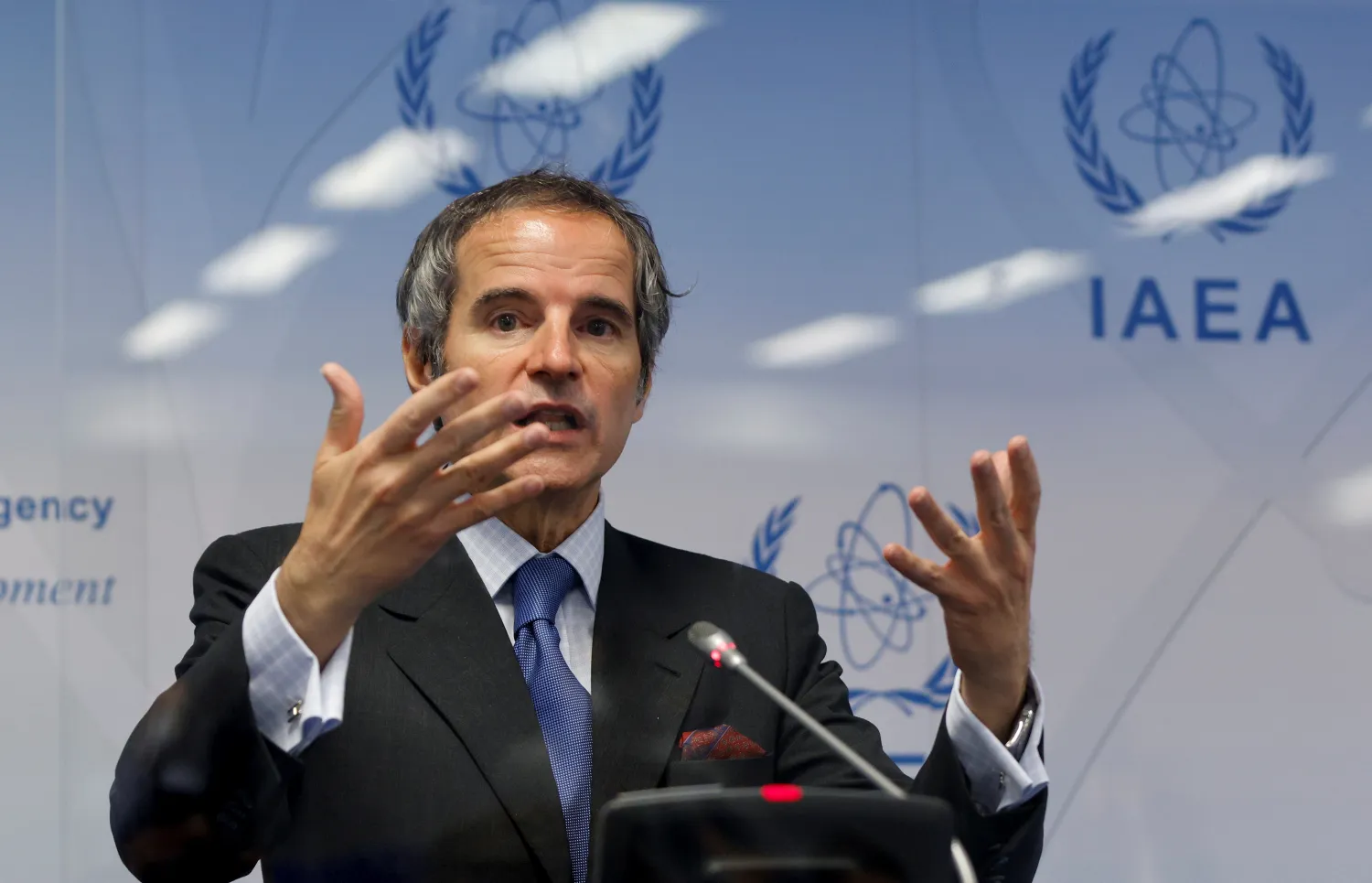The head of the International Atomic Energy Agency (IAEA) will visit Tehran on Saturday, Iranian news agency Nournews reported, suggesting this could help pave the way to a revival of Iran's 2015 nuclear agreement with major powers.
The visit by Rafael Grossi, head of the Vienna-based UN nuclear watchdog, was reported by the news agency affiliated with Iran's top security body as negotiators in Vienna seek to restore US and Iranian compliance with the agreement.
Despite progress in the talks, a key sticking point is Tehran wants the issue of uranium traces found at several old but undeclared sites in Iran to be dropped and closed forever, an Iranian official told Reuters.
"If Grossi's trip could help the agency and Tehran to reach a roadmap to resolve existing safeguard issues, it can help revival of the nuclear deal in Vienna," Nournews said in its report, without citing a source.
The IAEA last year reported Iran had failed to explain the uranium traces in its "safeguards declarations" to the agency.
The report of Grossi's trip comes as negotiators appear to be in the final stages of trying to restore the nuclear agreement.
Former US President Donald Trump pulled the United States out of the pact in 2018 and reimposed tough economic sanctions.
That led Iran to breach the nuclear limits of the deal, which was designed to make it harder for Tehran to obtain the fissile material for a nuclear bomb. Iran denies any such ambition.
"Bitter experience with the US breach of promises and European inaction have made it inevitable" that Iran will push to defend its interests by securing a reliable nuclear deal, Nournews earlier quoted Ali Shamkhani, head of Iran's Supreme National Security Council, as telling Iranian lawmakers.
Three Iranian officials close to the talks said a wide array of sanctions including those keeping Iran from exporting its oil and those on Supreme Leader Ali Khamenei and President Ebrahim Raisi were to be removed if the 2015 pact is revived.
Asked about the talks, Russian envoy Mikhail Ulyanov, the most publicly optimistic among the delegation chiefs, told Reuters "we are one minute from the finish line."









